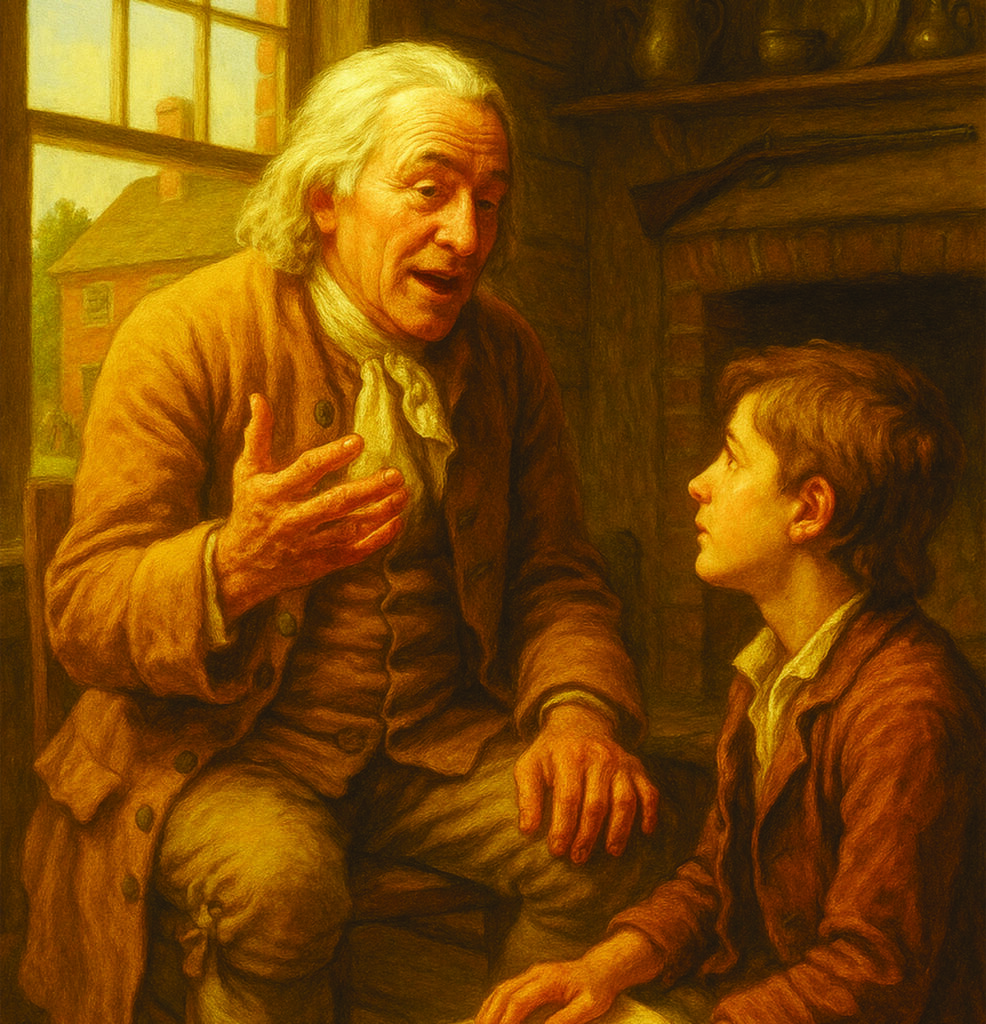contributed by Steve Fought
As you pass through the 55+ portal, you enter the realm of the Tribal Elders. Elders are the keepers and protectors of the wisdom of generations. They are expected to lead by example and teach others based on their experiences. The Elders are the story of the Tribe, and the Tribe’s Storytellers.
The role of the Storyteller is vastly underestimated. Storytellers, even in ancient times, were respected leaders who were charged with preserving, protecting, and passing along the history, customs, and wisdom of the Tribe. Through stories, they instilled a sense of belonging and group identity as well as standards and expectations for members.
Some of these stories are factual, other contrived, others a mix of fact and fiction. Lore (especially folklore) is a popular source for tribal stories. The special feature of lore is that while it can be a true story, it doesn’t have to be true. Lore doesn’t even have to be based on truth. But if you accept lore AS true it will help you communicate and understand that which IS true. Lore is useful.

Legends that Shaped a Culture
The story of George Washington and the cherry tree is folklore. The truth of the story is speculative, but nonetheless it sets a standard for behavior. Some scholars say Uncle Tom’s Cabin was fabricated out of whole cloth; nonetheless, it reflected many truths about slavery. Through it, the abolitionist Harriet Beecher Stowe captivated audiences and motivated armies (literally!). Chicken Little is obviously total fabrication, but it gets the message across. Beowulf and The Odyssey have defined and kept the warrior ethic alive for centuries.

Masters of the Message
Stories communicate, and the best communicators tell stories. Abraham Lincoln was probably the best-known presidential storyteller. When one of his generals would ask a difficult question, he would often respond with anecdotes and guide the listeners to the desired conclusion. Will Rogers’ yarns to his audiences and readers are legendary and timeless life lessons. Jesus spoke to all humanity in parables.
There are some great contemporary storytellers as well. I remember stories by James Michener, Leon Uris, and Herman Wouk bringing history to life and giving me an understanding of the world that more formal studies did not. Jonathan Livingston Seagull, although wildly imaginary, gave me a way to understand the need to be different, the desire to excel, and the importance of creativity. Even though I became an adult in the 60s and 70s, it took Shelby Steele’s 2015 book Shame to put the revolutionary movements of those decades into perspective. If you give me dates, and lists of dictums from on high, I am likely to get bored and miss the point. If you tell me a story, I can understand and internalize.
Stories From a Life Well Lived
Here are three stories I tell periodically, each derived from my personal experience. The first story begins when I was 12 years old. I came into the house grousing about a lot of things (can’t recall what), but apparently I was trying to make everyone else miserable as well. My mom stepped in and told me to go to my room and stay there until I changed my attitude. She said she didn’t care if I had to stay there for a week, or longer, with no food, and without seeing the light of day. No tolerance on her part. My attitude was going to change. It did, and I put on a permanent happy face and never behaved like that again.
The second story is from my flying days in the military. I was in the Standardization/Evaluation flight. I had a situation I needed to discuss with the squadron commander in fairly short order, so I went to his office. The 1st Sergeant told me the CO was wrapped up with a couple of individuals who got in trouble the night before, so it would probably be an hour or so before the CO could get to me.
The CO heard me outside his door and immediately told the others to leave and wait outside. Then he brought me in. After a brief discussion that resolved my issue, I thanked him for allowing me in despite the other demands for his attention. He explained that a lot of people say “you spend 90 percent of your time with 10 percent of your people, and those 10 percent are the ones causing trouble.” He said that was one of the most foolish approaches to leadership he knew of.
His policy was to spend 90 percent of his time with the 10 percent of the people who were doing the real work. The others could just wait in the lobby until he was ready for them. After all, he was going to be there until late in the day anyway, so why shouldn’t they just cool their jets until he was ready. He went on to make 3 Stars; I have followed his advice to this day.
The third story stems from a conversation we had on the City Council dais during COVID. A fellow council member relayed a story about her grandfather during the Depression. He had an overriding concern about his employees. They had been with his company for a long time and were essentially family. Her grandfather had to make a choice between closing the business and preserving his own assets, or keeping the business open and potentially depleting the assets as he kept his employees on the payroll.
He chose the latter and managed to keep the business open for nearly two years but eventually had to close. Her point was that his motivation set a moral standard for her and that, as a consequence, she strongly supported the various actions the City Council was considering to help local businesses remain in operation.
What could have been a rather sterile fiscal/budget debate shifted to a discussion of our obligation, to the community, to approve actions that would allow businesses to function and people to continue to work, even at a financial cost we would ordinarily not consider.
I’ve told those stories to our kids and grandkids, as part of their “growing up”, and to my colleagues at appropriate times. Hopefully, the stories have imparted some useful guidance.
Go For It!
Every one of us has had events or circumstances that changed, shaped, or otherwise defined our lives,
the lives of people in our Tribe, the lives of others we know, or even the world. Some for the better, and some for the worse. Tell those stories. Be the Storyteller.
